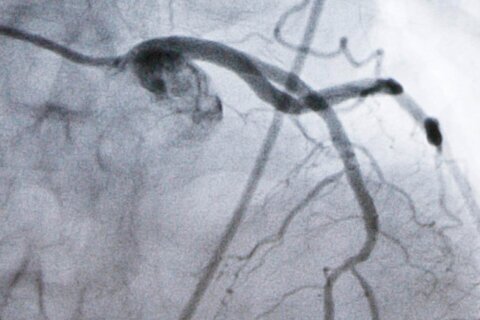It’s far from uncommon to associate chest pain with having a heart attack, but it’s not the only explanation for the common symptom.
“We think that about 5% of people that come to the hospital with chest pain actually have pericarditis. So to put it into perspective — that’s about one in every 20 cases that are being evaluated for chest pain — may have pericarditis,” said Dr. Antonio Abbate, cardiologist with UVA Health.
Pericarditis is the inflammation of a sac-like membrane that surrounds the heart. The condition affects all ages and genders the same, Abbate said. The most common cause is a viral infection of some sort.
“We’ve seen a lot of pericarditis with COVID, but you can see it with other type of infections, upper respiratory infections, you can see it with influenza, and when the virus attacks the body there gives an inflammatory stimulus,” Abbate said.
In addition, pericarditis can result from inflammation associated with heart surgery, or be a side effect of medications or vaccines.
It’s estimated around 40,000 to 50,000 individuals in the U.S. are affected by pericarditis, Abbate said. Fortunately, treatments including anti-inflammatory therapies target the condition and often get rid of it forever.
“The major issue is that if it’s not treated, it’s unlikely to go away, and so that pain can become significantly worse, can be burdensome, can impair your breathing, can impair your quality of life,” Abbate said.
A patient’s first episode can be very severe, according to Abbate. He said when someone is diagnosed with pericarditis, it’s often in the setting of a concern for a heart attack.
Severe chest pains and difficulty breathing are the main symptoms experienced by those suffering from pericarditis.
While vaccines are listed as a possible cause for the condition, Abbate said it’s not a reason to not get them.
“There’s something in the COVID virus that triggers an increased risk of having cardiovascular disease,” Abbate said. “When you compare that risk with the risk of vaccines, the risk of vaccines is much lower.”
He said using anti-inflammatory therapies early has been found to reduce the risk of complications and recurrences of pericarditis.
“Colchicine is an anti-inflammatory drug that … when used in patients with pericarditis, it treats the symptoms, the pain, and it prevents the recurrences and the complications. And patients are usually on treatment for about three months when it’s the first episode, or longer, if it’s multiple episodes,” Abbate said.
Get breaking news and daily headlines delivered to your email inbox by signing up here.
© 2024 WTOP. All Rights Reserved. This website is not intended for users located within the European Economic Area.








